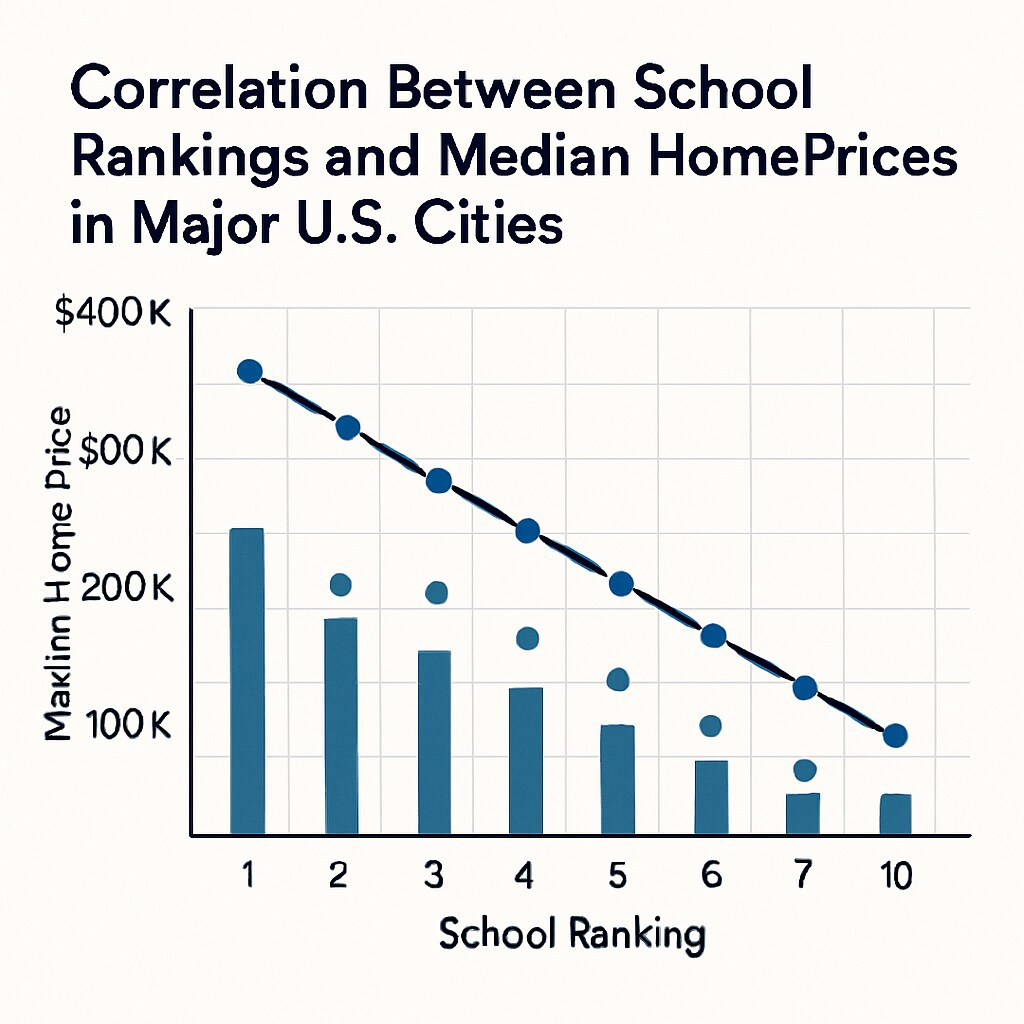Realtor.com’s latest analysis of school district rankings has highlighted the undeniable relationship between quality education, real estate values, and family housing choices. For parents prioritizing K-12 education, living within a top-ranked school district can be a key factor when selecting a home. In fact, the data indicates that the presence of a well-performing school district often leads to significantly higher property values, as families are willing to pay a premium for access to outstanding educational resources.

Why Are School District Rankings So Influential?
The connection between school district rankings and real estate prices can be attributed to several factors. First and foremost, parents recognize that access to exceptional education can have a lasting impact on their children’s futures. As a result, they are often willing to stretch their budgets to purchase homes within districts that boast high test scores, low student-to-teacher ratios, and strong extracurricular programs.
Moreover, top school districts often foster close-knit communities, which enhances the overall desirability of the area. Research also shows that houses in these districts tend to retain their value better during economic downturns. This stability further attracts buyers, creating a cycle of demand that bolsters property prices.
The Financial Premium of Living in a Top School District
Data from Realtor.com reveals that homes located within top school districts often cost significantly more than similar properties in less-acclaimed districts. For example, a study found that homes in the top 10% of school districts are priced, on average, 49% higher than homes in the bottom 10%.
While the upfront cost may seem steep, many families view this as an investment in both their child’s education and their property’s long-term value. Over time, these homes tend to appreciate more quickly, providing a financial cushion for families who decide to sell or refinance their homes in the future.

How Families Can Make Informed Housing Choices
For families considering a move, choosing the right neighborhood involves balancing several factors. Here are some tips to guide the decision-making process:
- Research school district rankings: Websites like Realtor.com, GreatSchools.org, or the National Center for Education Statistics provide detailed information on school performance.
- Assess housing affordability: Compare the cost of homes in high-ranking districts to your budget. Be sure to account for property taxes, which may be higher in these areas.
- Visit the schools: Touring schools and speaking with teachers or administrators can provide valuable insights into the educational environment.
- Consider long-term benefits: Weigh the potential for higher property appreciation against the initial premium paid for a home in a top district.
The Bigger Picture: Education and Real Estate Trends
The relationship between education and real estate is not just a matter of individual housing decisions; it also reflects broader societal trends. For instance, areas with high-performing school districts often experience increased economic development, as businesses and employers are drawn to regions that attract skilled workers with families.
However, this dynamic also raises concerns about affordability and access. In some cases, the rising cost of homes in sought-after school districts can exclude lower-income families, perpetuating inequality in educational opportunities. Policymakers and community leaders must work to address these challenges while maintaining the quality of local schools.
As Realtor.com’s study makes clear, school district rankings will continue to be a powerful force shaping residential real estate markets. For families focused on providing the best possible education for their children, understanding these dynamics is key to making informed housing choices.
Readability guidance: Short paragraphs, clear subheadings, and actionable tips improve engagement. Transitions like “however” and “in addition” enhance flow, while lists summarize key points effectively.


